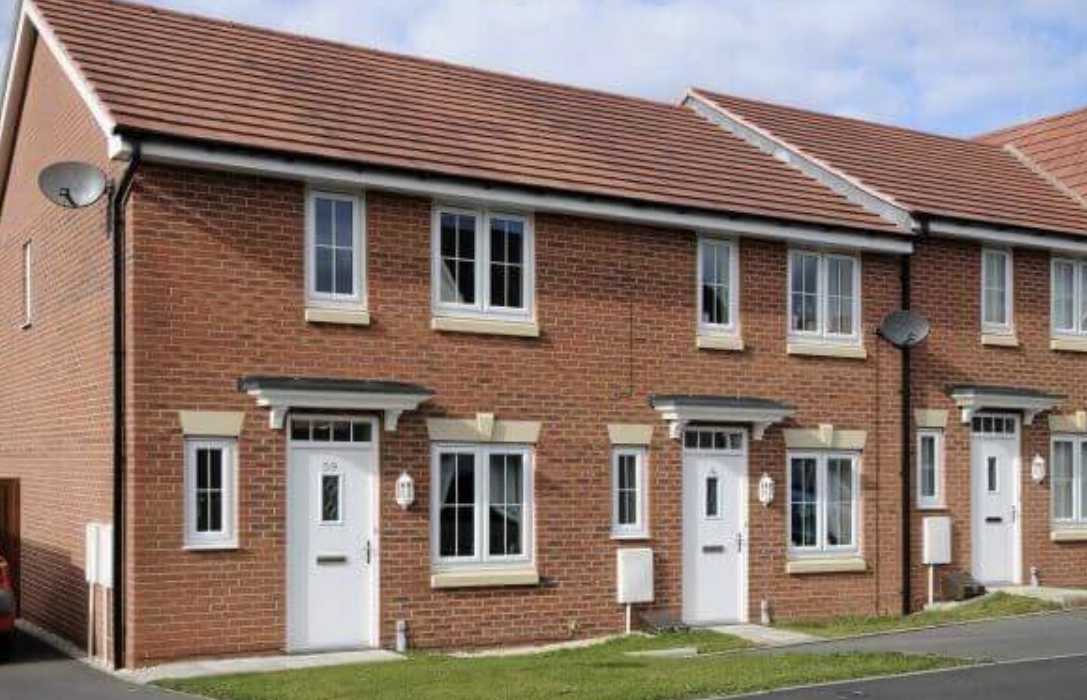Repointing brickwork requires careful selection of the right mortar mix to ensure long-lasting durability and compatibility with the existing structure.
Using the wrong mix can lead to cracking, moisture issues, or damage to the brickwork itself.
This guide outlines the best mortar mixes for repointing, based on their composition, strengths, and ideal applications.
Understanding Mortar Types for Repointing
Different mortar types offer various levels of strength, flexibility, and moisture resistance, all of which impact their performance for repointing. Here’s a breakdown of the most common types:
Type N Mortar: The All-Rounder for Repointing
-
Composition: 1 part Portland cement, 1 part lime, 6 parts sand
-
Compressive Strength: 750 psi (5.2 MPa)
Why Choose Type N?
Type N mortar is the most versatile option for repointing due to its balanced strength and flexibility. Suitable for a range of brickwork applications, this mix provides good compressive strength without being overly rigid, making it ideal for most residential projects and older brick structures. Its medium strength accommodates minor building movement, reducing the risk of cracking and helping maintain structural integrity.
Advantages of Type N
-
Flexibility: Accommodates slight movements in the building without cracking.
-
Water Retention: Holds moisture well, ensuring proper curing.
-
Compatibility: Works well with a variety of brick types, particularly those in older buildings.
When to Use Type N
This mix is excellent for general repointing in mild to moderate climates and is a top choice for most brickwork that doesn’t face extreme stress or harsh weather conditions.
Type O Mortar: The Go-To for Historic Brickwork
-
Composition: 1 part Portland cement, 2 parts lime, 9 parts sand
-
Compressive Strength: 350 psi (2.4 MPa)
Why Choose Type O?
Type O mortar, the softest of all types, is primarily used for repointing historic and softer bricks that could be damaged by stronger mixes. With a high lime content, Type O provides the flexibility needed for older structures, offering excellent breathability and moisture movement. This type is highly effective for buildings with softer, historic bricks, as it prevents moisture entrapment that could lead to deterioration.
Advantages of Type O
-
High Breathability: Allows moisture to escape, protecting softer masonry from damage.
-
Workability: The high lime content makes this mix easy to work with, providing excellent adhesion.
-
Historic Preservation: Minimises the risk of damaging delicate, older bricks.
When to Use Type O
This mix is best for low-stress applications, including older homes, historic buildings, and softer brick or stone that benefits from a gentler, more flexible mortar. However, it’s unsuitable for areas exposed to freeze-thaw cycles or heavy loads.
Type S Mortar: High Bond Strength for Challenging Environments
-
Composition: 1 part Portland cement, ½ part lime, 4½ parts sand
-
Compressive Strength: 1,800 psi (12.4 MPa)
Why Choose Type S?
Type S mortar is a stronger mix ideal for repointing in high-stress areas. Its higher compressive strength provides excellent bond and load-bearing capabilities, suitable for newer construction or projects in harsher weather conditions. However, caution is advised when using this mix on older structures, as it may be too strong and could lead to cracking in bricks that cannot handle its rigidity.
Advantages of Type S
-
Bond Strength: Offers greater durability in demanding applications.
-
Weather Resistance: Suitable for areas exposed to severe weather and below-grade applications.
-
Load Bearing: Effective for supporting heavier structures or newer masonry.
When to Use Type S
This mix is best suited for newer brickwork or high-stress areas that face severe weather conditions, such as below-grade walls or foundations. Avoid using Type S on softer or older bricks, as it may cause cracking due to its rigidity.
Type M Mortar: The Heavy-Duty Option (Rarely Recommended for Repointing)
-
Composition: 1 part Portland cement, ¼ part lime, 3 parts sand
-
Compressive Strength: 2,500 psi (17.2 MPa)
Why Type M is Not Ideal for Repointing
Type M mortar is the strongest available mix and is generally reserved for heavy-load-bearing walls and foundations rather than brick repointing. Its strength can be detrimental when used on softer or historic bricks, as it lacks the flexibility required for most repointing projects and may trap moisture, leading to structural issues.
Drawbacks of Type M
-
Inflexibility: Its rigidity can lead to cracks in existing brickwork.
-
Poor Water Retention: Dries too quickly, impacting bond quality.
-
Moisture Barrier: Risks trapping moisture within brickwork, leading to deterioration.
When (and When Not) to Use Type M
Only use Type M for specific applications, like foundation walls or hardscape projects requiring extreme strength. For general repointing, it’s best to avoid this mix to prevent damage to brickwork.
Choosing the Right Mortar Mix: Key Considerations
Here are some final pointers to help you decide on the best mortar mix for your repointing project:
-
Brick Age and Condition: Older, softer bricks generally require Type O or N mortar, while newer, harder bricks may handle Type S.
-
Environmental Conditions: Consider the local climate and exposure to moisture. Use Type N for general repointing, while Type S is ideal for areas facing heavy stress or extreme weather.
-
Building Movement: If the building has some natural movement, opt for Type N or O, as they provide the flexibility needed to adapt without cracking.
-
Aesthetic Match: When repointing historic or decorative masonry, choose a mortar mix that visually and physically matches the existing mortar for the best finish.
Final Thoughts: Ensuring the Best Results with the Right Mortar Mix
Selecting the appropriate mortar mix for repointing is essential to preserving the integrity and appearance of your brickwork.
For most general applications, Type N provides a balanced choice that combines durability with flexibility.
For historic structures, Type O is the safest choice, while Type S should be used selectively in challenging environments where extra strength is required.
Trade Warehouse offers a wide range of quality masonry supplies, including the right mortar mixes for every project.
Whether you’re tackling a small repointing job or a more extensive restoration, using the correct mortar type is key to achieving professional, long-lasting results.

